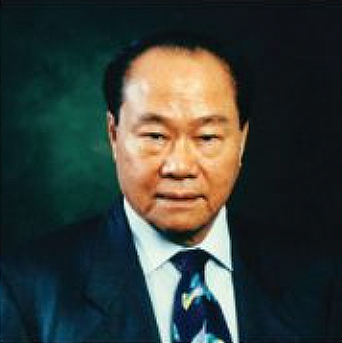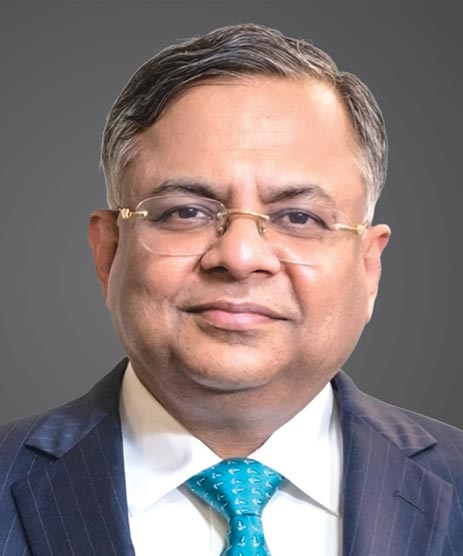FB Roundup: Wheatsheaf, Eka Tipta Widjaja, and Tata Motors

Wheatsheaf buys climate tech company to reduce food waste
Wheatsheaf Group, the investment arm of the Grosvenor family office, has acquired a 90% stake in Purfresh—a provider of specialised climate control technology designed to reduce food waste during shipping.
It is estimated as many as one out of 15 containers, some worth up to $500,000, are rejected when they arrive at their destination due to spoilage, according to Purfresh.
Based in San Francisco, the company’s technology combines controlled atmosphere and active atmosphere with ozone technology to reduce food-waste—delaying ripening, reducing decay and improving food safety through reducing food-borne pathogens—without the use of harsh chemicals.
According to the group, Purfresh’s cloud-based proprietary cargo monitoring software, Intellipur(r), provides real-time visibility into, and remote control of, the conditions of temperature-sensitive cargo shipped in refrigerated shipping containers around the world.
“Purfresh aligns very closely with our strategy of investing in companies that drive efficiencies in the food supply chain while also providing a tangible social benefit,” Graham Ramsbottom, chief executive of Wheatsheaf, said.
Wheatsheaf is one of the three key operating companies of the Grosvenor Estate, the family office of the seventh Duke of Westminster, Hugh Grosvenor (pictured), and the Grosvenor family. The estate was founded in 1677 by Sir Thomas Grosvenor, 3rd Baronet, after his marriage to Mary Davies, an heiress who had inherited 200ha of land north of the Thames to the west of the City of London.
The Grosvenor family still own the majority of the 200ha, which spans across Mayfair and Belgravia, and is now the core of a global property empire with total assets of $63.7 billion in 2017. The estate was passed to 28-year-old Hugh Grosvenor in 2016 after the death of his father, the sixth Duke of Westminster, Gerald Cavendish Grosvenor.
 Sinar Mars founder Eka Tjipta Widjaja dies
Sinar Mars founder Eka Tjipta Widjaja dies
Eka Tjipta Widjaja, founder of Sinar Mars Group and the patriarch of one of Indonesia’s most powerful families, has died aged 98.
Widjaja (pictured) passed away peacefully at his home in Jakarta of complications arising from old age on Saturday evening, according to Gandi Sulistiyanto, Sinar Mars managing director.
Born in China, Widjaja moved to Makassar in South Sulawesi when he was nine. After early success as a commodities trader, he founded Sinar Mas in 1962, diversifying into paper and pulp, real estate, food and telecommunications.
Widjaja grew to become Indonesia’s fourth-richest person, with a net worth of $9.3 billion, according to the Bloomberg Billionaires Index.
Companies under the Sinar Mas brand include Singapore-listed Golden Agri Resources, one of the world’s biggest producers of palm oil, and Bumi Serpong Damai, Indonesia’s largest listed property company. Sinar Mas posted a revenue of $2.3 billion in 2017.
However, Widjaja’s polygamy, which is legal in Indonesia, caused issues around succession. The tycoon had at least eight wives in houses across Jakarta and had fathered more than 40 children by the late 1990s, according to the Wall Street Journal.
According to the report, Widjaja addressed the issue by treating the children of his first wife as his heirs, while providing financial support to his other offspring to help start businesses.
Widjaja’s empire is now run by his children and grandchildren. His grandson, Fuganto Widjaja, is now seen as the new face of Sinar Mas. As the chief executive of coal mining and trading company Golden Energy, Sinar Mas’ Singapore-based subsidiary, Fuganto is keen to expand into education and healthcare.
“Old Sinar Mas was agri-business and timber plantation, and paper and pulp, but new Sinar Mas will be energy and infrastructure, and telecoms and healthcare and education,” he told the Financial Times in 2015.
 Tata Motors posts record-breaking loss on Jaguar Land Rover
Tata Motors posts record-breaking loss on Jaguar Land Rover
Indian carmaker Tata Motors has posted a $3.8 billion loss for the third quarter of this financial year—the biggest loss recorded in Indian corporate history.
The disclosure sent its share price tumbling as much as 30% on the Bombay Stock Exchange—the biggest drop in 26 years.
The loss was largely triggered by issues stemming from their Jaguar Land Rover (JLR) unit, which makes up the bulk of Tata’s $11 billion revenue.
JLR has been under pressure on several fronts. Its sales in China—the world's biggest car market—fell 40% in January compared to the same period last year and their issues have been compounded by ongoing Brexit uncertainty and low demand for its diesel cars in Europe.
Following the news, Tata issued a warning that its JLR unit would be posting an operating loss in the year to March after previously projecting to breakeven.
“We are now taking clear and decisive actions in JLR to step up its competitiveness, reduce costs and improve cash flows and make the business fit for the future,” PB Balaji, Tata Motor's chief financial officer, said.
Tata Motors acquired Jaguar Land Rover in 2008 for $2.3 billion from Ford Motor Company.
In an effort to mitigate the impact of weaker demand in China, JLR will be focusing on generating profits for its car dealers, with the company looking to incentivise retail sales over wholesale, JLR chief commercial officer Felix Brautigam said.
Tata Motors, India’s largest manufacturer of commercial vehicles, is a subsidiary of Tata Group, a multinational conglomerate founded in 1868 by Jamsetji Tata. Through the generations, the company has always been led by a Tata family member until 2012 when Ratan Tata, former chairman, retired at age 75 and appointed the first chief from outside the immediate family, Cyrus Mistry. In 2016, Mistry was removed and replaced by Natarajan Chandrasekaran (pictured) as chairman. Tata Group posted revenue of $110.7 billion and Tata Motors posted $43.9 billion in revenue in 2018.






